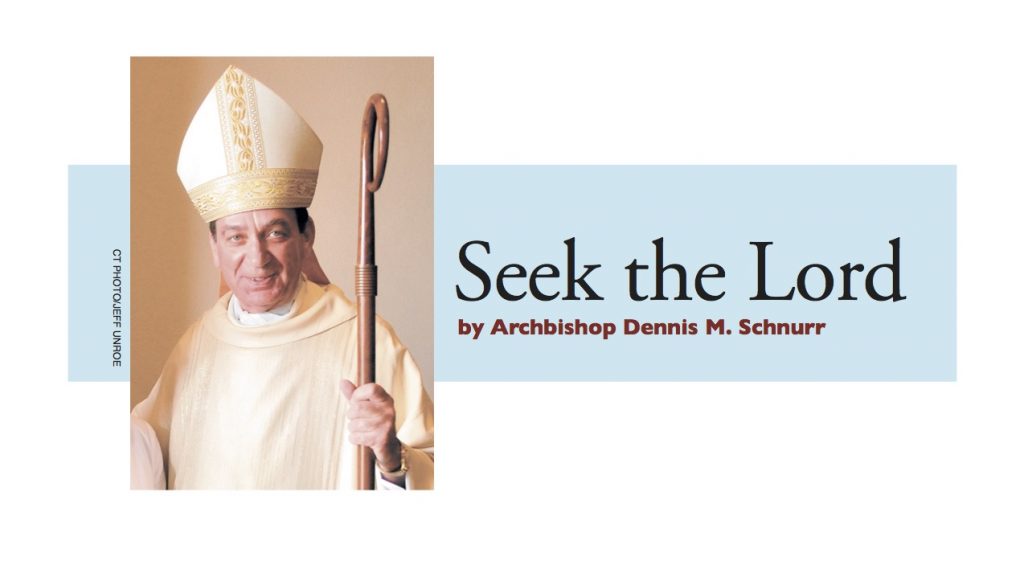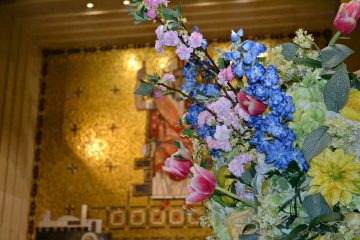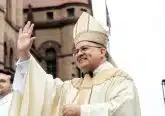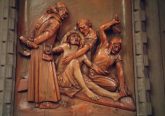Seek the Lord by Archbishop Dennis M. Schnurr
 We are only halfway through Lent, and retail stores are well into offering Easter candy and sales on Easter outfits. This is only natural. We all want to skip death and get to the resurrection. Perhaps that desire is even stronger in difficult times. And we are living in difficult times.
We are only halfway through Lent, and retail stores are well into offering Easter candy and sales on Easter outfits. This is only natural. We all want to skip death and get to the resurrection. Perhaps that desire is even stronger in difficult times. And we are living in difficult times.
In the civic realm, debates about political and social matters in our country (and many others) quickly become not only contentious, but uncivil and even hateful – especially when fueled by social media. Partly as a result, our leaders make little progress on important problems.
At the same time, the Church continues to go through a long, dark night of the soul as we struggle to deal with the legacy of clerical child abuse and the lack of accountability for bishops.
This troubled world could use some good news. Easter provides it, for the resurrection is at the very heart of the Good News of Jesus Christ. As St. Paul wrote, “if Christ has not been raised your faith is in vain” (1 Corinthians 15:17). Without the resurrection, in fact, there would be no Church. Only after their encounter with the resurrected Lord did the cowering apostles of Good Friday become the martyrs that carried Christ’s Gospel to the ends of the earth. As St. Augustine of Hippo put it, “We are an Easter people, and alleluia is our song.”
At the Easter Vigil this year, we will hear St. Luke’s account of the angels telling the women at the tomb, “Why do you seek the living one among the dead? He is not here, but he has been raised” (Luke 24:5). In St. Matthew’s Gospel, this announcement is prefaced by the comforting words, “Do not be afraid” (Matthew 28:5).
Hope drives out fear. The Easter story brings a message of hope for us today as well, as recent popes have taught.
“To celebrate Easter is to allow Jesus to triumph over the craven fear that so often assaults and tries to bury every kind of hope,” Pope Francis said in his Easter Vigil homily last year.“The
stone before the tomb shared in this, the women of the Gospel shared in this, and now the invitation is addressed once more to you and me.”
Pope Benedict XVI struck a similar note at the Church of the Holy Sepulchre in Jerusalem on a pastoral visit to the Holy Land in 2009: “The empty tomb speaks to us of hope, the hope that does not disappoint because it is the gift of the Spirit of life (cf. Romans 5:5).”
Hope always looks to the future. The message of Easter is not that there is no pain, suffering, and death, but that death shall not have the last word. That is why we have the centuries-old tradition of the egg as an Easter symbol. The empty shell of a hatched egg represents the new life that has come forth from it.
Easter is the feast of feasts, around which the Church Year centers. Before the feast, however, comes the fast – the penitential season of Lent.
The observance of Lent, during which the “Alleluia” is not sung at Mass, began in the early Church as the final period of preparation for new Christians being baptized at the Easter Vigil. It remains today an opportunity for each of us to spiritually “clean house” for Easter by prayer, fasting, and alms-giving.
If you have not focused on Lent up to now this year, I invite you to do so. If you began with good intentions that fell by the wayside, I invite you to start over. It is not too late.













